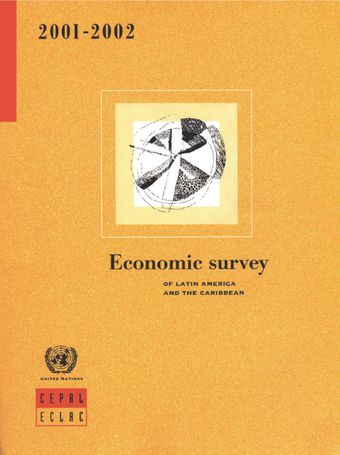Chile

- Autor: Economic Commission for Latin America and the Caribbean
- Main Title: Economic Survey of Latin America and the Caribbean 2001-2002 , pp 125-132
- Fecha de la publicación: octubre 2002
- DOI: https://doi.org/10.18356/78db197c-en
- Language: Inglés
The Chilean economy's growth rate slackened from 4.4% in 2000 to 2.8% in 2001. The worldwide economic slowdown dealt a severe blow to the terms of trade, which fell by 8.7%, with the result that national income decreased by 0.5%. Indeed, the external environment in 2001 was one of the worst the country had faced since the mid-1980s: according to official estimates, copper and petroleum prices and dwindling inflows of external capital resulted in a loss of income on the order of seven percentage points of GDP in comparison to what would have been expected in a "normal" year. Average growth for 1998-2001 was 3%, which contrasts with the average of nearly 7% recorded between 1986 and 1997, while the 12-month inflation rate was 2.6%. The external deficit amounted to 1.2% of GDP and the public deficit to 0.3% of GDP. Despite harsh international conditions and the stagnation of domestic spending, an exchange-rate hike and the reduction of the interest rate set by monetary policymakers created monetary conditions that will undoubtedly have a reactivating effect in the medium term. Nonetheless, the real interest rate applicable to most firms remained very high, thus reflecting the difficulties involved in passing on rate cuts to the credit market.
-
From This Site
/content/books/9789211558388s003-c004dcterms_title,dcterms_subject,pub_keyword-contentType:Journal -contentType:Contributor -contentType:Concept -contentType:Institution105



